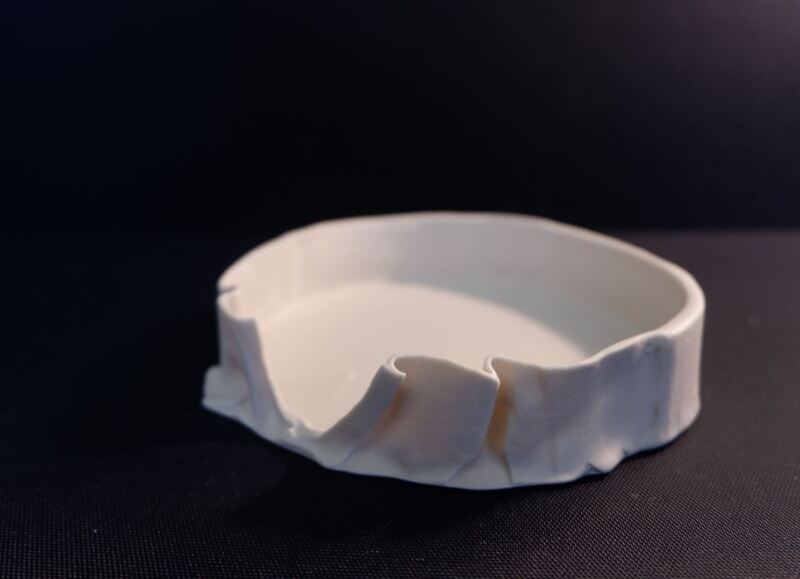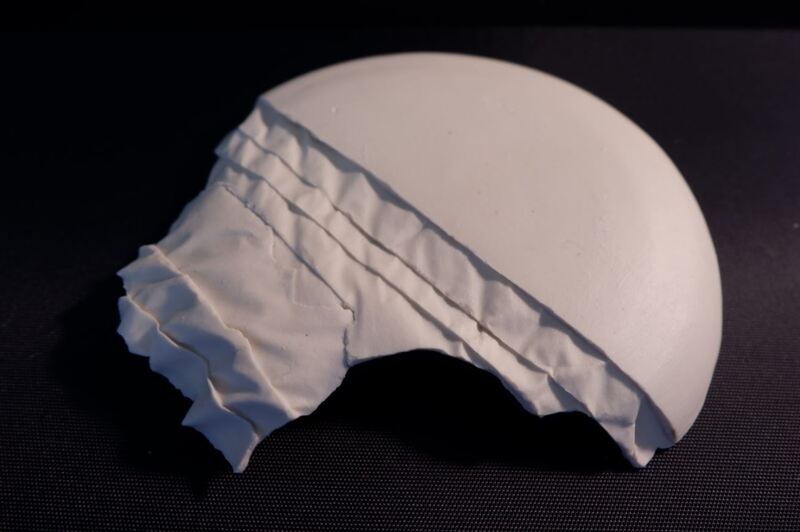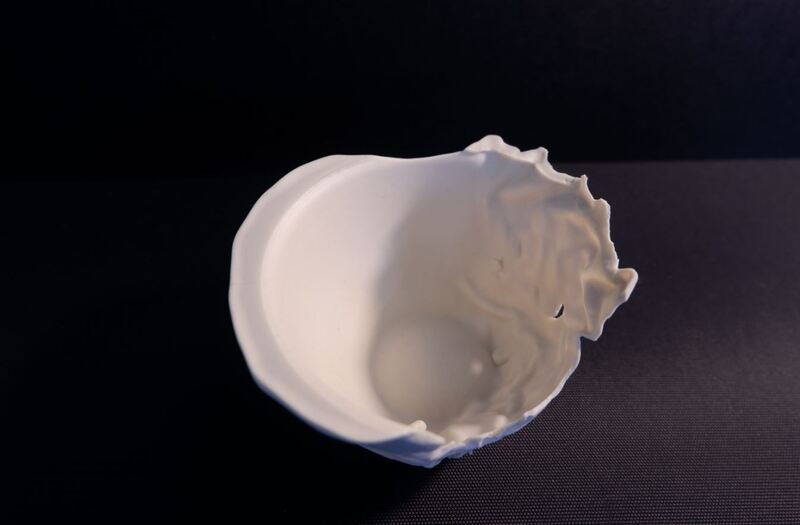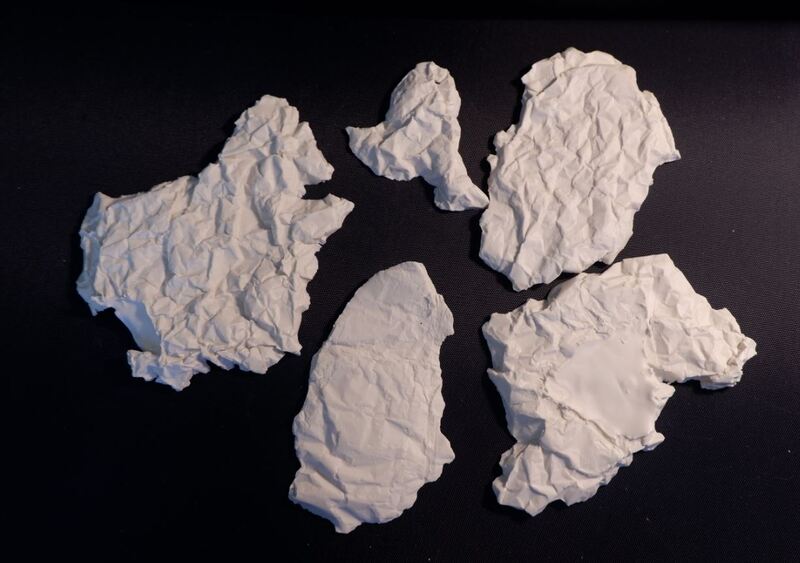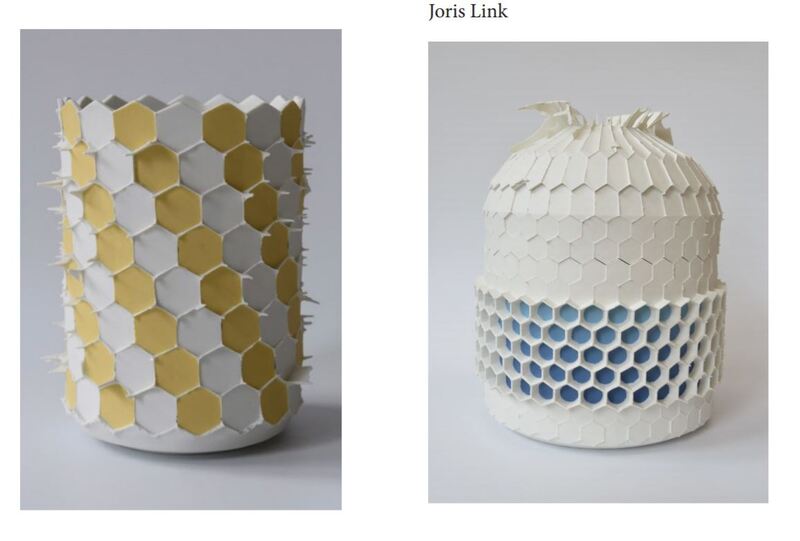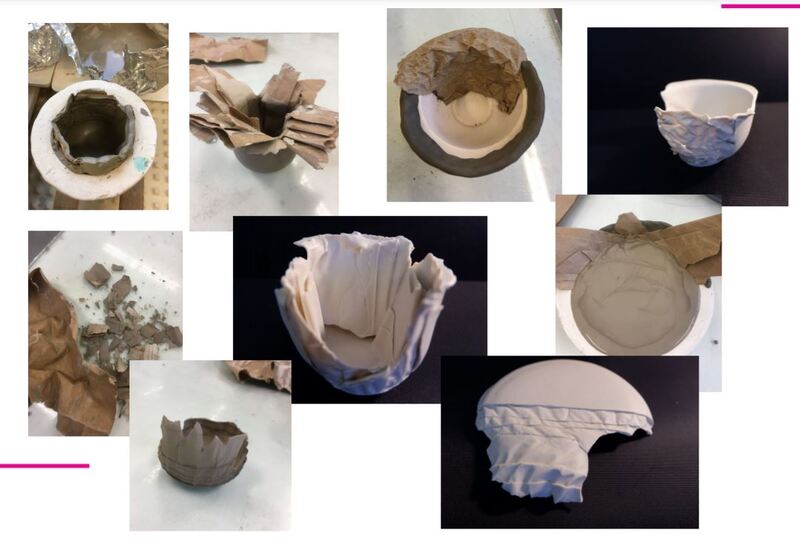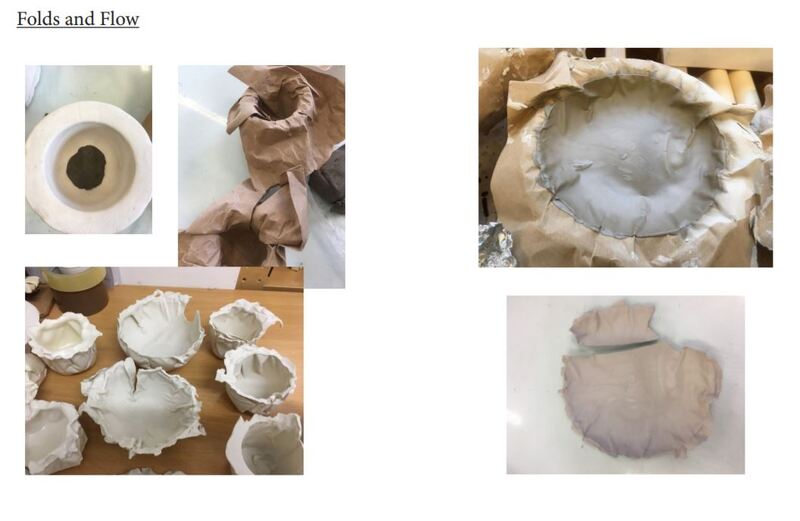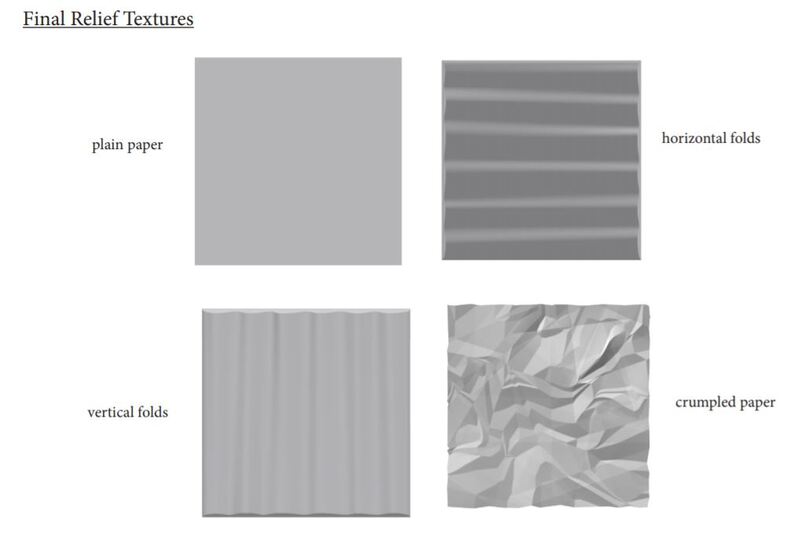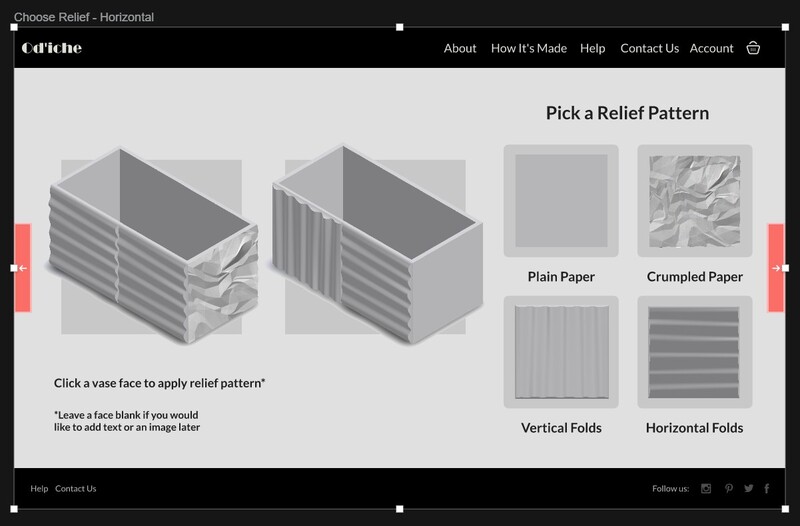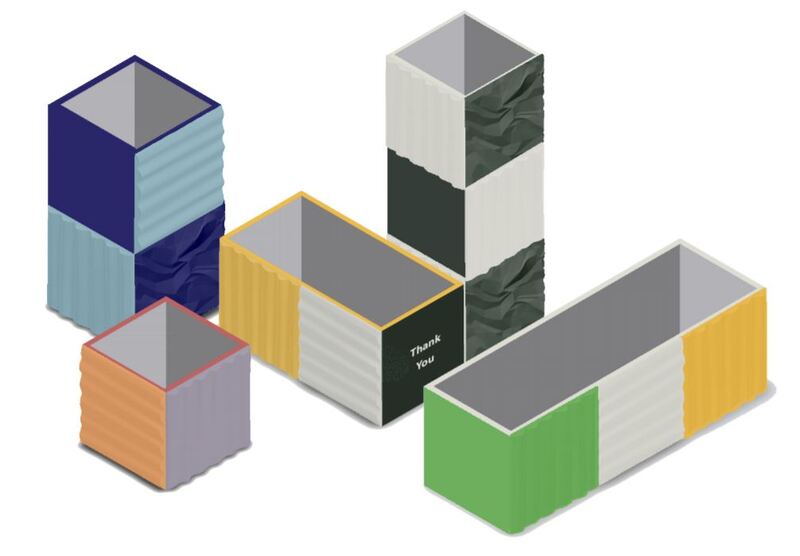Nonye Azikiwe
‘Ọ dị iche’ in the Igbo language means ‘it is different’ or ‘it is unique’. Shortened to ‘Ọd’iche’, it serves as a description or summary of what my work is about – beauty in individuality. Drawing on the aspect of the Japanese wabi-sabi philosophy which highlights transience and imperfection, I explored the beauty of ceramic objects through their materiality and form.
Slip-casting is used to make multiple copies of the same ceramic object. Some of the mugs in your kitchen could have been made from the same cylindrical mould. But can slip-casting be used to create unique objects? Yes! Others have done so successfully using different colours and layers of slip, marbling, sgraffito, glazing etc. However, those decisions are dependent on the designer. I challenged that – why not let the slip-casting process decide by itself what the uniqueness of the object should be?
I played with cup and bowl-shaped plaster moulds, incorporating other materials into them to create hybrid moulds. Changing the relief textures of the slip-casted objects was a simple as squeezing paper or folding fabric. The objects I made using this repeatable process are imperfect and beautiful. The irregularities are random and the balance between smooth and rough are in a constant state of flux, much like wabi sabi.
The pandemic helped me evolve my production process to become a user-driven customisable ceramic batch production. So, with Ọd’iche, you can design and explore your own individuality.
